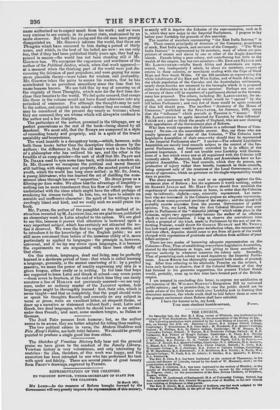Mr. Partnt,the author of the pamphlet on the method of
in- struction invented by M. JACOTOT, has, we are glad to see, published an elementary work in Latin adapted to the system. We are glad to see this, because it proves that attention is bestowed upon a very important subject, which has certainly not attracted the no- tice it deserved. We were the first to report upon its merits, and to introduce it to the knowledge of the English public : we are still more convinced than before of the immense utility of it, more particularly as applied to languages : the principle is, however, universal, and if we lay any stress upon languages, it is because the experiments we are acquainted with have been chiefly of that class.
On this system, languages, dead and living, may he perfectly learned in a moderate period of time : that which is called learning a language, generally, is the merest smattering of it : by a perfect mastery, we mean the power of readily expressing any idea in a given tongue, either orally or in writing. In the time that boys are supposed to learn Latin and Greek at school—say seven years —from seven to fourteen, at the end of which time they can rarely construe a line of HORACE not previously scanned—we are very sure, under an ordinary master of the JACOTOT system, four languages might be thoroughly learned : first, their own, which is never taught—and that so completely, that the pupil should write or speak his thoughts fluently and correctly on any subject in verse or prose, write an excellent letter, an eloquent theme, or draw up a narrative or statement without fault ; next, Latin and Greek, two dead languages, which he should know as an ambas- sador does French; and next, some modern tongue, as Italian or German.


























 Previous page
Previous page